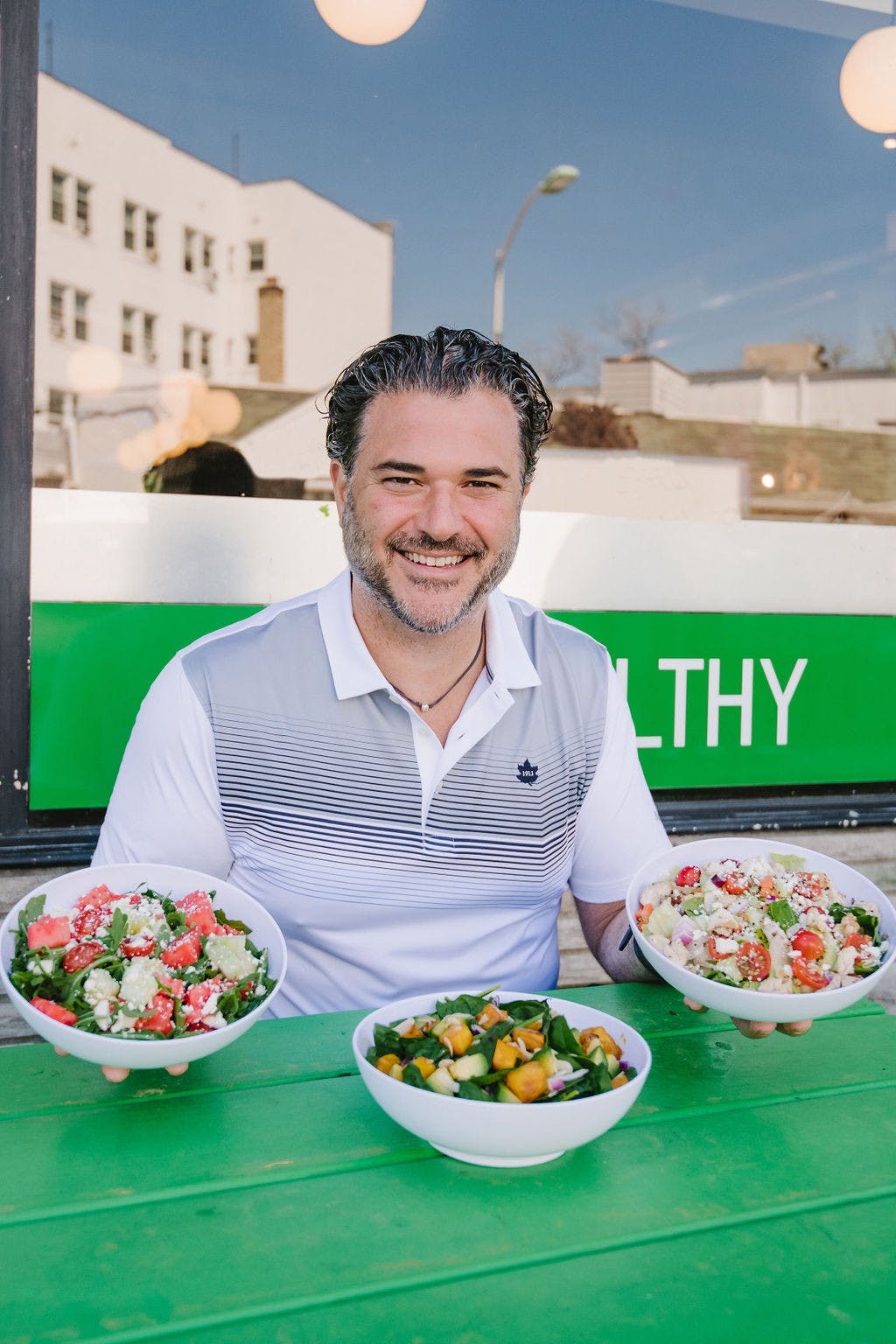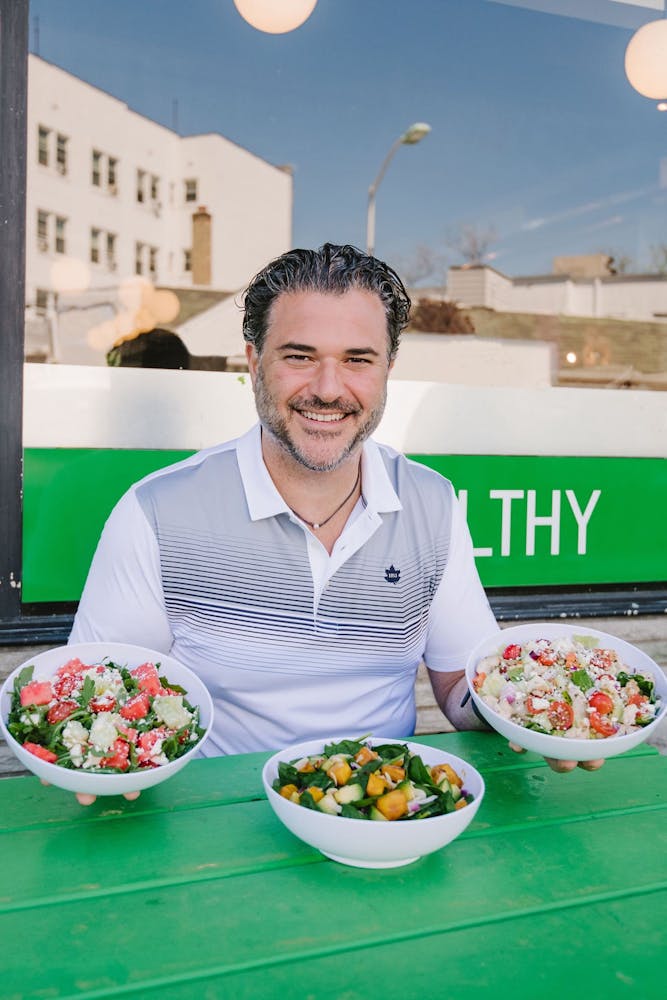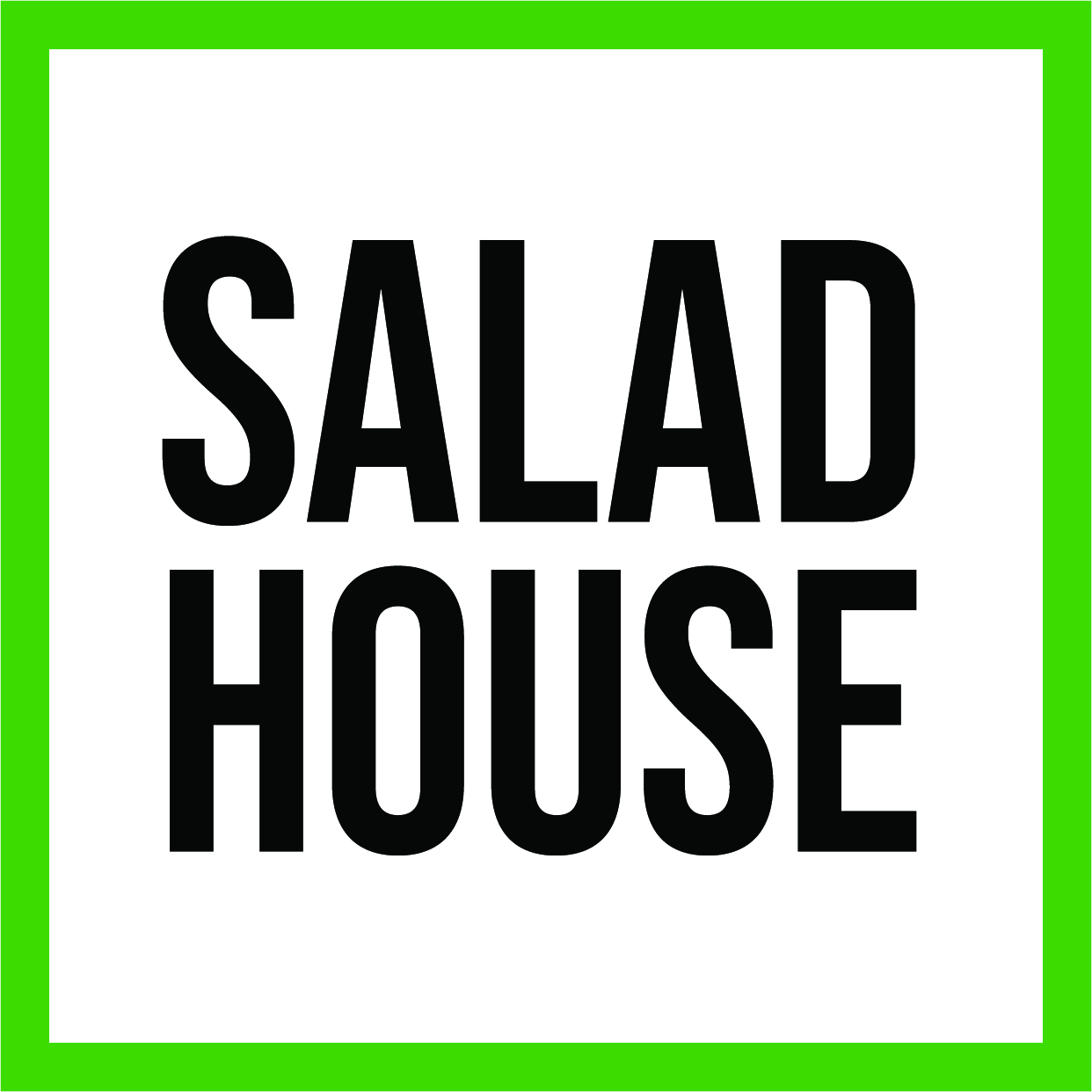Joey Cioffi of The Salad House: 5 Things You Need To Create a Successful Food Line or Specialty Food

Backend operations — Rolling out new menu items and creating a successful food line involves a lot of development and work, and one of the most important factors is to ensure that you can rely on your third party vendors. Whenever The Salad House creates a new menu item, prior to adding it to the menu, we ensure that our vendors are prepared and that our supply chain of ingredients is stable. After that, we work and communicate with our employees to provide the necessary food preparation training for the new item so that once the new item is on the menu, there are minimal errors. Utilizing an efficient POS system is vital as well when creating a new menu item. A strong system will make it easier to add the new menu item for in-store and online ordering. It can also help you gather data about the performance of the new menu item and see if it is registering with customers, or if you should move on and try another item.
Ihad the pleasure of interviewing Joey Cioffi, a veteran restaurateur with over 10 years of experience in the industry. He is the founder and CEO of The Salad House, a rapidly expanding salad franchise concept based in New Jersey that is currently seeking new partners throughout New Jersey, Connecticut, New York, and Pennsylvania.
Thank you so much for doing this with us! Before we dive in, our readers would love to learn a bit more about you. Can you tell us a bit about your “childhood backstory”?
The Salad House has been generations in the making. My father came to the United States from Italy with the hopes of achieving the American Dream. Eventually, he opened up his own business, Cioffi’s deli in Springfield, New Jersey. It was at the family restaurant that I really gained a lot of my experience in the restaurant industry. As a kid, I can remember doing everything from washing dishes, working the cash register, cooking food, and fulfilling large catering orders. What seemed like just helping out the family business ended up leading to an incredible passion for serving up quality food, a value that was instilled in me during years of hard work at the deli with my father. Ultimately, the concept for The Salad House was born from this passion of providing high quality food to our community. I created The Salad House with one single purpose: to provide a fresh, fast-casual experience that was both healthy and family friendly. What started out as a vision, born from the values I learned as a child, has become a rapidly expanding healthy fast casual franchise concept that has helped me follow in my father’s footsteps and fulfill my own American Dream.
Can you share with us the story of the “ah ha” moment that led to the creation of the food brand you are leading?
My wife and I live in the greater New York City metro area and she was frustrated that she couldn’t find a good chopped salad place in the suburbs like you can on every corner in New York City. She made a great point: who said there couldn’t be healthy salad concepts in the suburbs? After hearing her frustration and doing a little bit of planning and research, I saw the potential for a salad concept and realized that there was a huge market for healthy restaurants in the suburbs. Shortly thereafter, I saw an empty storefront and a lightbulb went off. I knew that this empty storefront would be the perfect place to open up a healthy fast casual restaurant and bring the healthy restaurant trend to the suburbs. Later that night, I went home and drew up a business plan and the rest is history.
Can you share a story about the funniest mistake you made when you were first starting? Can you tell us what lesson you learned from that?
As most entrepreneurs know, when you start a business there are going to be dozens of phone calls and emails trying to sell you the latest and greatest technology, equipment, ingredients, etc. Well, when I first started The Salad House, I wasn’t aware of this, and was convinced by a very persuasive equipment salesperson that I needed to have a specific (and very expensive) piece of equipment. Of course after hearing the salesperson talk about it, I went ahead and bought the piece of equipment, and before I could even install it into the restaurant, it was stolen from the construction site. Having lost such a valuable piece of equipment, I went out and purchased another one thinking it was crucial to my brand’s success. 10 years have gone by since I purchased the second piece, and it still sits in my basement collecting dust!
I think the main lesson to learn from this situation is that while you may not know what the future holds for your restaurant, be sure to only invest in equipment that you are 100% certain you will use!
What are the most common mistakes you have seen people make when they start a food line? What can be done to avoid those errors?
I think some of the most common mistakes is that what you may like, doesn’t always translate into what customers will pay for and purchase. During the beginning years of The Salad House, we had an enormous menu with some things that we thought people would absolutely love. While it is great to offer a large menu for customers to choose from, at the end of the day, you’re trying to run a successful business, and the more menu items you offer doesn’t always mean you will find success. To navigate this issue, we use sales data provided by our point-of-sale system to track the various menu items we offer, and pay especially close to how limited time offers, or seasonal dishes perform. This data will help you understand if your menu item is resonating with customers, or if it is best to remove it from the menu entirely and try another item.
Let’s imagine that someone reading this interview has an idea for a product that they would like to produce. What are the first few steps that you would recommend that they take?
Test your market. Ask friends, family, and associates about any ideas that you have and be open to their feedback. Just because you personally really like a menu item idea, doesn’t mean they will, let alone your customers.
Many people have good ideas all the time. But some people seem to struggle in taking a good idea and translating it into an actual business. How would you encourage someone to overcome this hurdle?
Starting a business is a very difficult thing to do, and being a successful entrepreneur is a tough thing to achieve. My best advice is to just go for it. If you truly are passionate about what you want to do, you will work harder than you ever have in your life to make sure it succeeds. You have to be prepared to do your best to move the ball forward, no matter what the obstacles are. Once you get moving and start enacting your plan, things have a habit of falling into place and working themselves out.
There are many invention development consultants. Would you recommend that a person with a new idea hire such a consultant, or should they try to strike out on their own?
I think any entrepreneur with an idea should always try to make it on their own first. It is often from experience that we can learn our most important lessons. Once you launch, you may find yourself needing expertise in a certain area about something you know nothing about. At this point, it may be a good time to call in an expert who can help you continue implementing your plan and can play a key role in your success moving forward.
What are your thoughts about bootstrapping vs looking for venture capital? What is the best way to decide if you should do either one?
Personally, I believe in bootstrapping. I think the majority of business owners when they get started go through some form of bootstrapping, whether it’s going to family or friends. For me, after developing The Salad House concept, I received interested from a very knowledgeable business partner who assembled a team that has really taken The Salad House brand to the next level.

Can you share thoughts from your experience about how to file a patent, how to source good raw ingredients, how to source a good manufacturer, and how to find a retailer or distributor?
A key part of The Salad House’s success has been our ability to build and forge strong relationships, whether that is with third part delivery vendors, equipment providers, or food distributors. In the case of our food distributor, we have established a long-lasting and trusting relationship with them. We worked with them hand-in-hand as we reviewed our food item list to negotiate the best prices for our concept. These relationships are absolutely vital to a brand’s success. For example, when the Covid-19 pandemic first struck, we knew we could rely on our distributor because we had developed back up plans and had that trusting relationship with them. They knew our brand’s needs, and we understood the information we needed to provide them so they could be successful in providing us with the products we needed.
Here is the main question of our discussion. What are your “5 Things You Need To Create a Successful Food Line or Specialty Food” and why? (Please share a story or example for each.)
Stay Relevant — The restaurant industry is constantly shifting and it is vital for restaurants to stay on top of food trends and offer new flavors to our customers to keep them engaged and satisfied, which is why The Salad House rolls out new menu items two times a year. Customers will always like having some go-to favorites on your menu, but being able to provide them with some new and exciting options is really important to show them that you’re thinking of new ways to serve them and expose them to new flavors and ideas.
Pay attention to trends — and react to them! At The Salad House, our Sweet Heat Sandwich and Buffalo Jack Signature Salad are some of our most popular menu items according to our data. This tells us that our customers really enjoy our flavorful chicken paired with cheese. Using this knowledge, we created one of our newest menu items: the Crispy Mutha Clucka Sandwich. This new recipe features our BBQ chicken, bacon, iceberg lettuce, frizzled onions, cheddar cheese and is topped with ranch dressing. Not only is this a new and exciting menu item, but it’s also in-line with what our customers are wanting from our restaurant.
Engage Customers — Particularly with the Crispy Mutha Clucka Sandwich, we came up with a catchy name to draw attention to the item on the menu board and on social media channels as well. The name is funny and really jumps out at people when they read through our menu. The hope is that while making people smile and laugh about the name, it also makes them curious about the item and want to try the sandwich.
Collaborate — Influencers have long been a powerful tool for restaurant concepts to use to help them grow their brand. The Salad House has a masterful influencer program to partner with relevant influencers within the local food and healthy lifestyle community. We offer these influencers special preview tastings of new menu items to provide them with exclusive content that they can then share with their followers. Not only does this help bolster our relationship with the influencer, but it also helps create a buzz about the new menu items among followers, with the ultimate goal of driving traffic to the store to try them.
Backend operations — Rolling out new menu items and creating a successful food line involves a lot of development and work, and one of the most important factors is to ensure that you can rely on your third party vendors. Whenever The Salad House creates a new menu item, prior to adding it to the menu, we ensure that our vendors are prepared and that our supply chain of ingredients is stable. After that, we work and communicate with our employees to provide the necessary food preparation training for the new item so that once the new item is on the menu, there are minimal errors. Utilizing an efficient POS system is vital as well when creating a new menu item. A strong system will make it easier to add the new menu item for in-store and online ordering. It can also help you gather data about the performance of the new menu item and see if it is registering with customers, or if you should move on and try another item.
Can you share your ideas about how to create a product that people really love and are ‘crazy about’?
It’s really about paying attention to what you know works and resonates with your customer base. For The Salad House, we know from analyzing our sales data that the combination of cheese and chicken is something that our customers really enjoy. We kept this in mind when developing new menu items, which helped us put together the Crispy Mutha Clucka sandwich. Having a unique name for a new menu item (like the Crispy Mutha Clucka) will also help it stand out to customers.
Ok. We are nearly done. Here are our final questions. How have you used your success to make the world a better place?
We at The Salad House pride ourselves on being pillars in the communities that we are a part of. Community outreach is so important to us and we try to be philanthropic in every way that we can — whether that is providing a special holiday meal to a local shelter, donating sales proceeds to a charity on behalf of an employee, or feeding frontline workers during the pandemic. As a business, not only is it the right thing to do to support the local communities that visit our restaurants, but it is our duty to help the community around us during a time of need. Not only does this showcase your brand’s commitment to the community, but it will also endear you to customers because they will be able to see that your business truly cares about the community it serves.
You are an inspiration to a great many people. If you could inspire a movement that would bring the most amount of good to the most amount of people, what would that be? You never know what your idea can trigger.
I would urge people to be kind. Life certainly has its ups and downs, and I believe it is very important to take a step back from time to time and look at the challenges you face compared to the challenges that others face. Perspective is always a good thing, especially when things in life get overwhelming and we become stressed or anxious. One of my good friends, Eric LeGrand suffered a severe spinal cord injury while playing collegiate football and is now paralyzed from the neck down. Eric is one of the kindest and most positive people that I know because he doesn’t dwell on the past, but instead is grateful to have his brain, family and friends. He was dealt a bad hand, but has become an inspiration to millions of people across the country because of his positive outlook on life. I thank God every day for the simple things because it is so easy to get caught up in this fast paced world and forget how grateful we really should be.
We are very blessed that some of the biggest names in Business, VC funding, Sports, and Entertainment read this column. Is there a person in the world, or in the US, with whom you would love to have a private breakfast or lunch, and why? He or she might just see this if we tag them.
This is a great question because one of the first books I read that pertained to my industry helped provide me with values that I’ve lived my life by and run my business on. Howard Schultz’s book “Pour Your Heart Into It” helped shape my outlook on the food industry. His message spoke to product quality, creating an outstanding customer experience, and taking care of your employees, all values that were instilled in me by my time working at the family deli. His message resonated with my own personal values that I’ve built The Salad House on and it would be great to meet him someday. Maybe he and I can go to Dunkin’ and grab a cup of coffee together ☺ Just kidding, I am — and always will be — a Starbucks guy (Dark Roast lover specifically).
